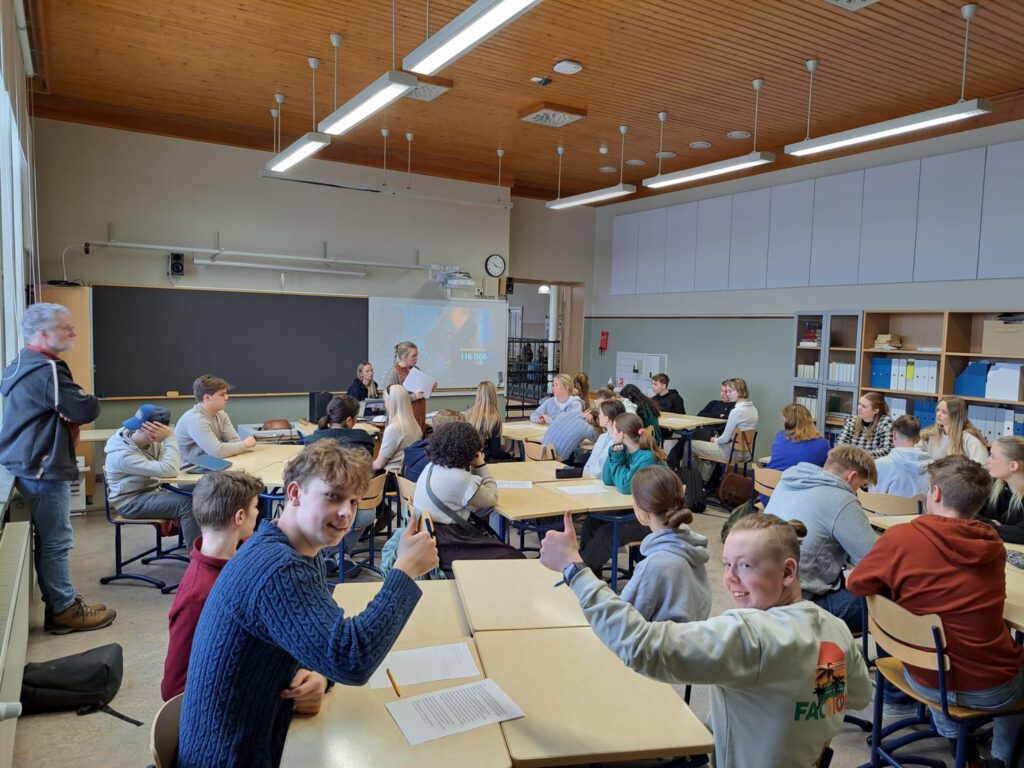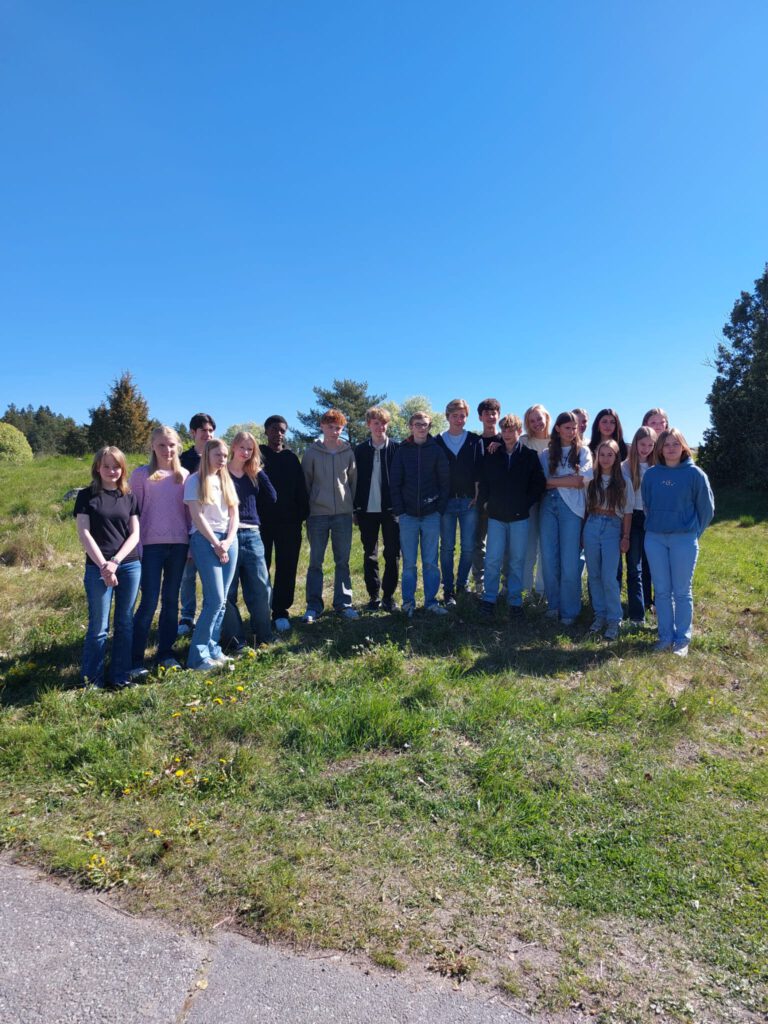Evaluation

Final Evaluation
How did the participants of the project, the schools and schools communities benefit from taking part in PIXEL? Is there something we should improve regarding the project management, tasks for teachers and students or the choice of acitivities?
What was the best you learned or experienced during the Erasmus project?
– new school system, different cultures
– The most valuable experience for me was observing geography lessons from a Swedish colleague. It was fascinating to see both the similarities and differences in teaching styles and classroom culture. For example, Swedish students were very respectful, yet they were allowed to wear jackets and caps in class—something that would not be acceptable in our school. I also appreciated the calm atmosphere created by the absence of a school bell. Additionally, I had meaningful conversations with the school leadership about implementing educational innovations, which I found very inspiring.
– Students working together and „forgetting“ they are from different countries
– I think the best thing for me, was getting to know the students from the other countries. I enjoyed spending time with them, while learning a lot about them and their countries.
– To see the difference Culture and How they live or what they do different that was very now and cool!
– The best thing is that we keep on working on a long lasting relation with colleage-teachers from different countries in the EU. I learn a lot about the way they work in their school.
– It was a pleasure to have the opportunity to meet colleagues and students from Germany, Sweden and Finland. The intercultural meetings, using English as a target language, not only fostered meaningful communication but also broadened my understanding of each other’s educational systems and cultures. This experience enriched my perspective, encouraged collaboration and inspired me with new ideas.
– talking englisch – making new friends
– I learned to talk english most of the time and seeing the culture of sweden.
– Speaking English and getting to know people
– Speak Englisch.
– The students in Almunge skola thought the best thing with the exchange was practising language skills. They also thought it was fascinating learning more about other cultures finding similarities, differences and learning how to work together. Another postive outcome was to get to know people from different countries and creating a network.
How did meeting and working with students/teachers from other countries change the way you think about different cultures?
– We are all so similar, actually!
– Working closely with Swedish and German colleagues helped me realize how much we share in terms of educational goals, even though our systems and customs differ. It broadened my perspective and made me more open to alternative approaches. For our students, staying with host families was a powerful way to experience cultural differences in values and daily life, which led to great discussions and personal growth.
– There is so much to learn from each other – be open for new experiences!
– Meeting and working with students and teachers definitely changed the way I think about other cultures. It made me realise, that while there are differents, we have a lot in common and how fun it is, to explore different cultures.
– That there is so much more to see and learn about and that is actually interesting.
– It is very good to see how students learn about the way children from their age work and live in other EU countries.
– Meeting and working with teachers and students gave me valuable insight into how some things we do are different but also how many similarities we have in our approach to teaching and education. It helped me appreciate the diversity of perspectives and problem solving methods each country, teacher and student brought to the activities and how much the students especially worked well in teams and showed that intercultural cooperation is possible.
– Yes a little bit, what the school looks like.
– Yes I thought that the schools were not very different from our school but it was very different because of the time it starts and how they are going to school and at school it was different.
– Yes I thought the school was very similar to ours but that was not the case.
– You see that lessons are taught differently and it is also different in other countries.
– Even though there are lots of similarities there are differences in cultures as well, for example rules at home. You have to be able to compromise and adapt to different situations.
Can you tell about a problem your group had and how you solved it together?
– How to commincate at the beginning: Get to know each other, be brave and just talk to the others.
– A task like the cooking task was the best way to make the students talk together.
– At some stage it was not clear who was responsible for certain tasks. But there was always someone to volunteer and to sort things out.
– I don’t think there was a huge problem we had to overcome, because we all got along very well. Of course, it was a little bit hard in the beginning, because we didn’t know each other, but that went away very quickly.
– Maybe to connect each other also with the partners from my friends and the teamwork But we solved it very good because we met us all together and talked in a language that we all understood.
– Most of the problems are about (mis)communication between students. They find it very hard to speak frankly about issues. Luckely these misunderstandings can easily be solved with the help from the teachers and/or the parents.
– I encountered no problems.
– I was in a group that didn’t say anything, so we couldn’t complete the assignment properly,
at school not everyone participated very well and showed interest in what we had to do. But within the Dutch group everything went well and we didn’t really run into any problems.
starting and getting to know each other
– There was a problem but we couldn’t solve it. The problem was that we had to get up very early.t
– If there were language barriers the students used their phones and different digital tools to solve the problem.
Waht new skills did you learn during the project (for example: speaking English, working in a team, solving problems)?
– I improved my intercultural communication skills and gained new insights into international collaboration in education. I also practiced my English in a professional context and learned from observing different teaching methods. For the students, teamwork, English communication, and creative collaboration—especially during the cooking activity—were key skills they developed.
– Teamwork was great: everybody made the most of their individual strengths.
– I learned new skills when working with AI, for example how to use it properly. Furthermore I could practice my English skills and learn, how to work well with people I didn’t really know.
– Actually how to be more extroverted or how to include in a family that I don’t know and how to speak with the host family all that did I learned and helps myself in the future
– Working in an international team is an ongoing process that never ends. And as a coordinator it is also important to lear how to make sure that the communication between the members of the team works well.
– I learned how to use Canva to make a booklet for the project:)
– English speaking
– I really learned to speak English there and also how to work with AI and what AI can do.
– speaking English, how to deal with chat gpt and collaboration
– I have become much better in English and especially in speaking.
We developed the following skills:
– language skills
– learning about different cultures
– learning about team work
– developing social skills
How did the erasmus project help you think about your future (like school, work or travel)?
– This project reinforced my belief in the importance of international exchange in education. It motivated me to continue seeking opportunities for collaboration and innovation. It also gave me new ideas for how we might improve our own school environment by learning from others.
– I am hopeful that Europa/the EU will profit from this generation of students, who are digital natives and have so many opportunities to connect and share and who also value diversity.
What would you change to make the project even better next time?
– The project was very well organized, and we had sufficient time for reflection. However, a joint reflection session involving both teachers and students could be a valuable addition, allowing everyone to share their perspectives and learn from each other. Additionally, starting the program slightly later each day would be appreciated, as it would allow for a more relaxed and well-rested start, especially considering the intensity of the schedule.
– It would be great to involve students in the planning more that already done.
– We schould make a presentation game/activity, at least 30 minutes, so that all the students can get aquainted, before we begin with the actual workshop
